You will spend many minutes—or hours—in Baldur’s Gate 3‘s character creation, especially if you care about choosing the best starting class right on your first attempt.
That’s even more challenging if you’re a beginner because you will take some time to learn about all the customization options you’re offered. We’re here to make your class selection easier based on the early challenges you will face.
These are your best options for classes if you’re just starting in Baldur’s Gate 3.
Best melee classes for beginners in Baldur’s Gate 3
Paladin
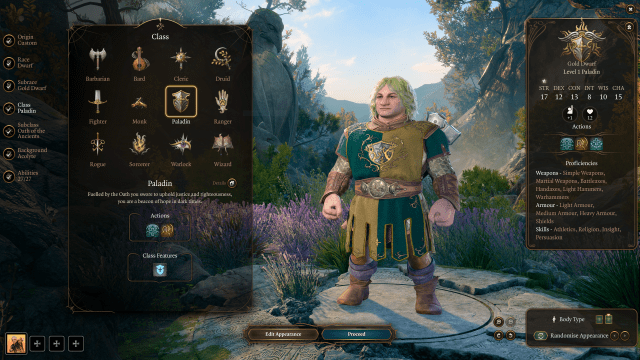
- Best if you like: a tanky support character with heals and solid damage
- Strengths: Melee prowess, support abilities, holy damage, many weapon/armor proficiencies
- Subclasses: Oath of the Ancients, Oath of Devotion, Oath of Vengeance, Oathbreaker
- Most important abilities: Strength, Charisma, Constitution
- Must-have skills: Cure Wounds, Bless, Thunderous Smite, Divine Favor, Shield of Faith
Paladins lean on their powerful divine or holy magic to support them and their melee-focused damage output.
Take the toughness and melee capabilities of a Fighter and add sustainability and support options for the party, and you’ve got a versatile class in the Paladin. The best Paladins are proficient with most weapons and all forms of armor, as well as Persuasion and Intimidation skills, which can be very helpful in any playthrough.
My suggestion for your Oath? Oath of the Ancients, which can heal an entire party for 10 points if everyone is within three meters. Or, you can take the path of the Oathbreaker and harness dark magic.
Fighter
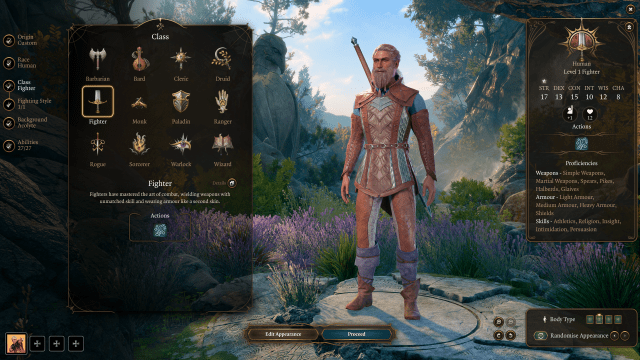
- Best if you like: Classic, straightforward melee classes.
- Strengths: Melee prowess, ranged damage, many weapon/armor proficiencies
- Subclasses: Battle Master, Eldritch Knight, Champion,
- Most important abilities: Strength, Dexterity, Constitution
Dragonborn, Half-Orc, and Gold Dwarf are good starting races for a Fighter due to their traits, such as Half-Orc’s Relentless Endurance that lets you survive a killing blow. It synergizes perfectly with the Fighter’s natural survivability.
While lacking the support options as the Paladin, the best Fighters are true melee specialists and even get a self-heal early on via the second-level ability Second Wind. Several of the fighting styles you pick at creation are excellent choices: Buff your Armor Class with the Defense style, ensure high two-handed weapon damage rolls with Great Weapon Fighting, or impose a Disadvantage on enemies with the shield-based Protection style.
As for your eventual subclass choice, Battle Master unlocks a handful of unique Manoeuvres, while Eldritch Knight supplements your melee prowess with some magic.
Best ranged classes for beginners in Baldur’s Gate 3
Ranger
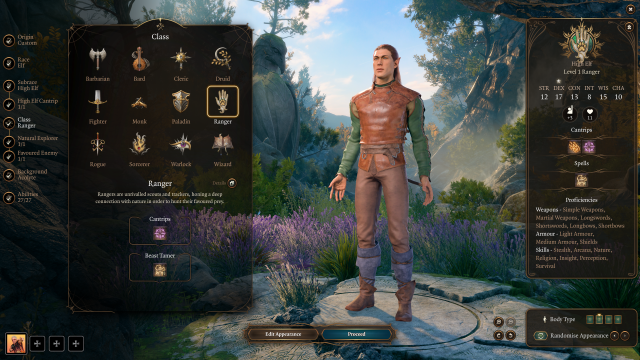
- Best if you like: Doing lots of damage from far away and using pets
- Strengths: Ranged damage, stealthy, good spells later on
- Subclasses: Hunter, Beast Master, Gloom Stalker
- Most important abilities: Dexterity, Wisdom, Constitution
The definitive class for fans of the bow and arrow is the Ranger. The best Rangers focus on your Dexterity skill: You increase your ranged prowess and make yourself harder for enemies to hit, but make sure to put some points in Wisdom for the spells you get later on.
Each subclass is viable, too: Beast Master adds a member to your part in a faithful animal companion, Hunter grants an ability keen for dire situations, and Gloom Stalker offers some excellent stealth options.
Rogue
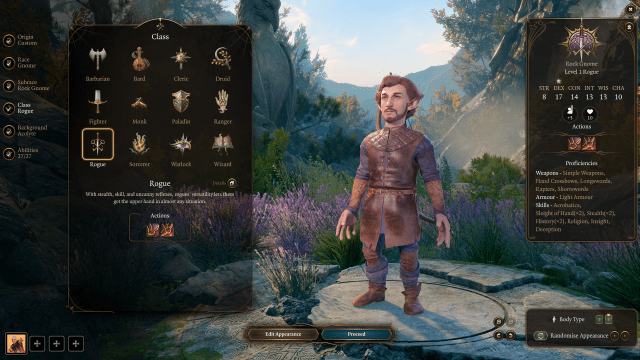
- Best if you like: Sneaking around, pickpocketing, and daggers, lots of daggers
- Strengths: Ranged damage, very stealthy, good subclasses, useful for thievery
- Subclasses: Thief, Arcane Trickster, Assassin
- Most important abilities: Dexterity, Wisdom, Constitution
Speaking of stealth, a ranged Rogue is exceptional for getting the jump on enemies before a full fight breaks out. By hiding before combat, the best Rogues can effectively start every fight with a ranged Sneak Attack, which deals extra damage, and some of the later class features you unlock are perfect for creating distance if the fighting gets too close.
All the subclasses for Rogue are good, too; improve your Stealth with Thief, maximize critical strikes and actions with Assassin, or add some magic with Arcane Trickster.
Best magic classes for beginners in Baldur’s Gate 3
Bard
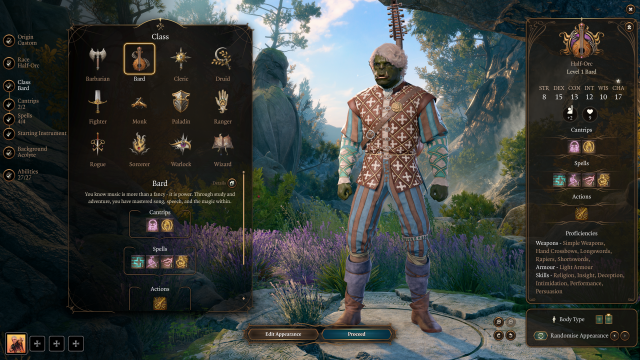
- Best if you like: Being the smooth-talker of the party and playing music
- Strengths: Buffs and support, dialogue
- Subclasses: The College of Lore, The College of Swords, The College of Valour
- Most important abilities: Charisma, Dexterity, Constitution
- Must-have skills: Healing Word, Tasha’s Hideous Laughter, Dissonant Whispers, Vicious Mockery, Blade Ward
Every bard starts the same, so you can actually choose subclasses that best benefit your group. Bards are among the most flexible classes in the game.
The best support character for any party is the Bard. With a high Charisma score and more Skill proficiencies, the Bard is the perfect focal point for dialogue and can help any member of the party with an attack roll, saving throw, or ability check with the Bardic Inspiration bonus action.
Many of the Bard’s spells are both amusing and convenient, like Tasha’s Hideous Laughter, which leaves a creature prone with laughter for up to 10 turns.
Sorcerer
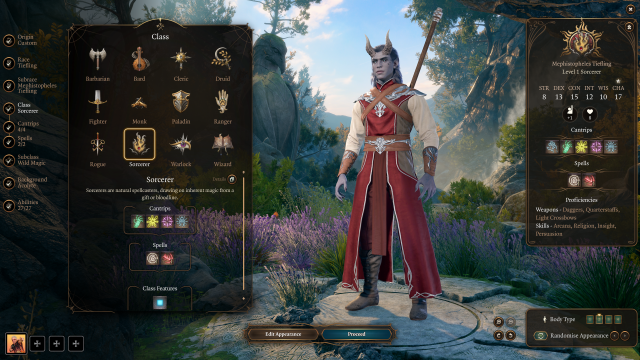
- Best if you like: Metamagic (let’s be real, it’s awesome) or turning into a dragon
- Strengths: Large number of at-will spells, dialogue, debuffs
- Subclasses: Draconic Bloodline, Wild Magic, Storm Sorcery
- Most important abilities: Charisma, Constitution, Dexterity
- Must-have skills: Fire Bolt, Ray of Frost, Magic Missile, Chromatic Orb,
Of the primary spellcasters, the Sorcerer is slightly more favorable to beginners because of the number of Cantrips (spells that can be cast at will) they have, but they also have some really powerful and unique spell options like an explosive Ice Knife or a blinding Color Spray.
Because the best Sorcerers are Charisma-based, too, they’re excellent in dialogue as well. Sorcerers really get fun later on with Metamagic, which lets them alter their spells with extra effects.
How to change your class and respec abilities in Baldur’s Gate 3
You can change your character’s class for 100gp by speaking with Withers after freeing him during the Explore the Ruins quest if you regret your starting choice. Doing so will change your Ability Scores to match your new class’, but you will retain any experience points you gained throughout your run. You can also change your subclass, cantrips, and stats spread during this process.
Be patient, though, since you can multiclass in BG3 very early, which will give your character whatever you think they need to cover their weaknesses.
Others Asked
Which characters are recommended for a stealth-oriented party in Baldur's Gate 3 if you're not playing as a Rogue?
If you're not a Rogue, it is recommended to include Astarion (Rogue), Shadowheart (Cleric), Karlach (Barbarian) or another fighting class main character, and Gale (Wizard) or your spell-casting main character in a stealth-oriented party.
What unique feature does Baldur's Gate 3 offer to its players?
Baldur's Gate 3 allows players to do practically anything and everything they want, including killing important characters in the game’s story.
What are some recommended multiclass builds in Baldur's Gate 3 and why are they suggested?
Some recommended multiclass builds in Baldur's Gate 3 are Sorcerer and Warlock (Sorlock), Sorcerer and Paladin (Sorcadin), and Rogue and Ranger (Gloomssassin). These builds are suggested because they synergize well with each other, complementing the strengths and abilities of their paired classes.




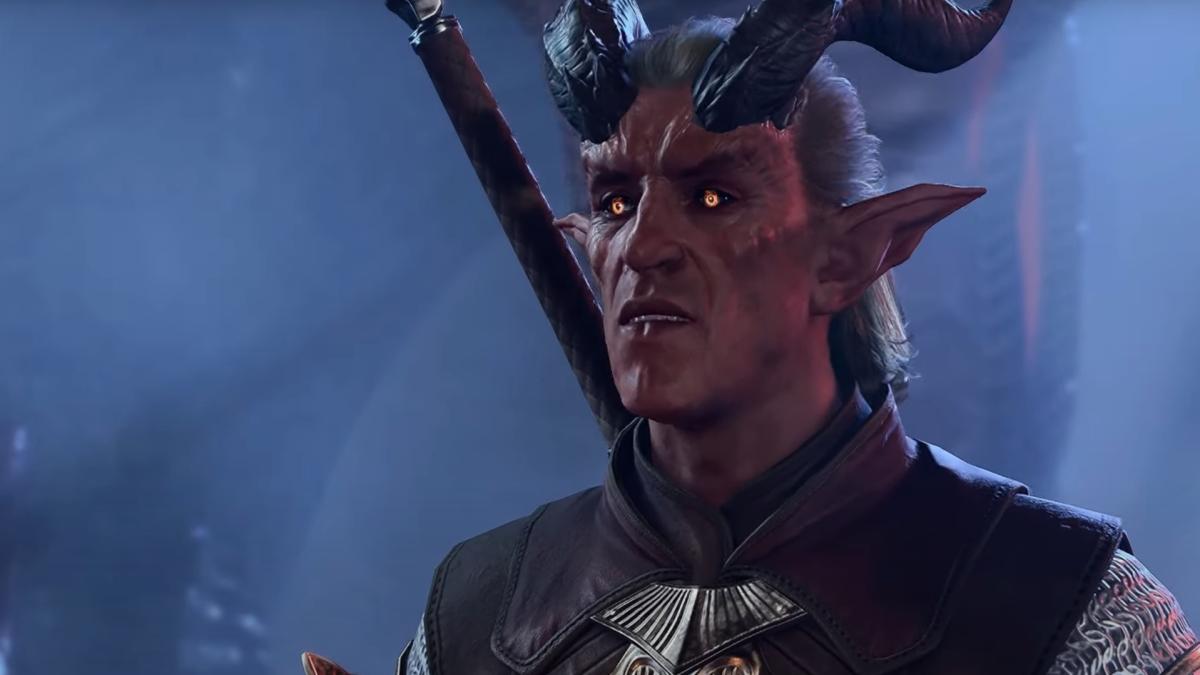
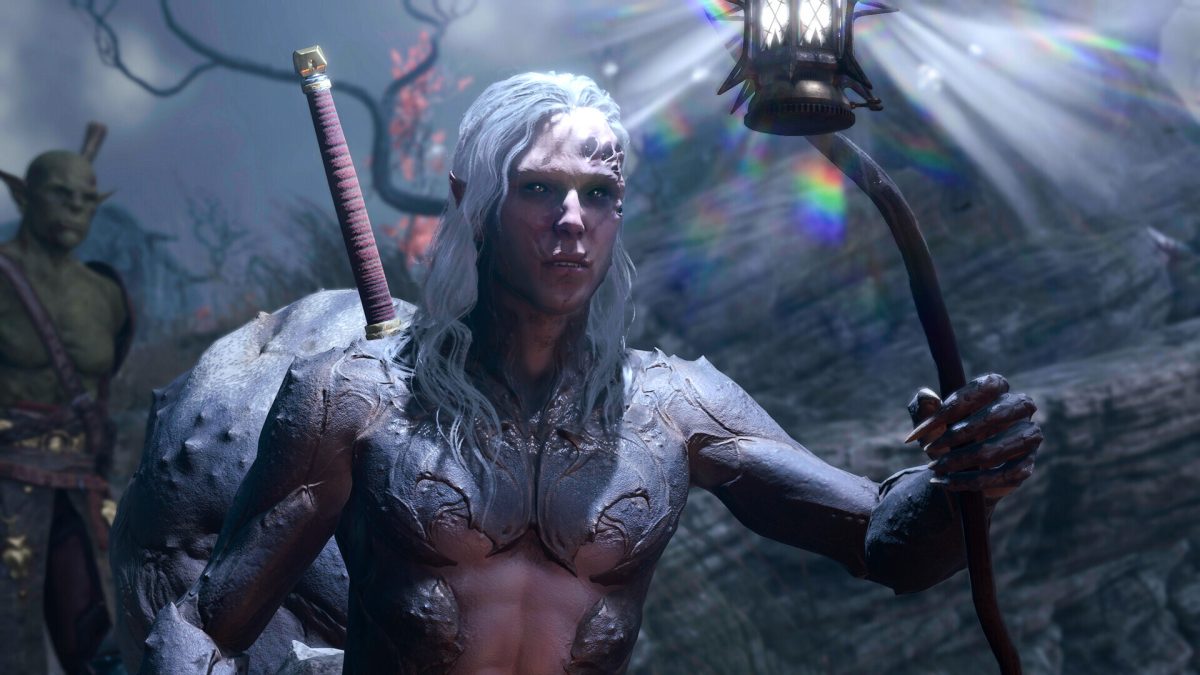
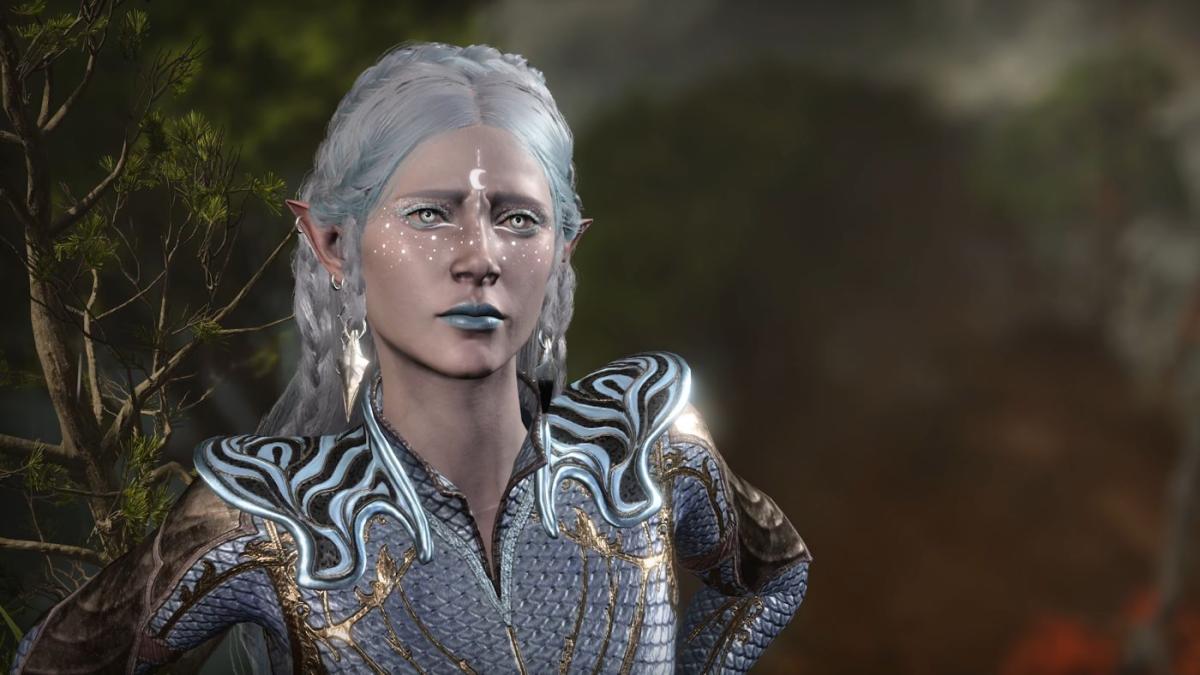


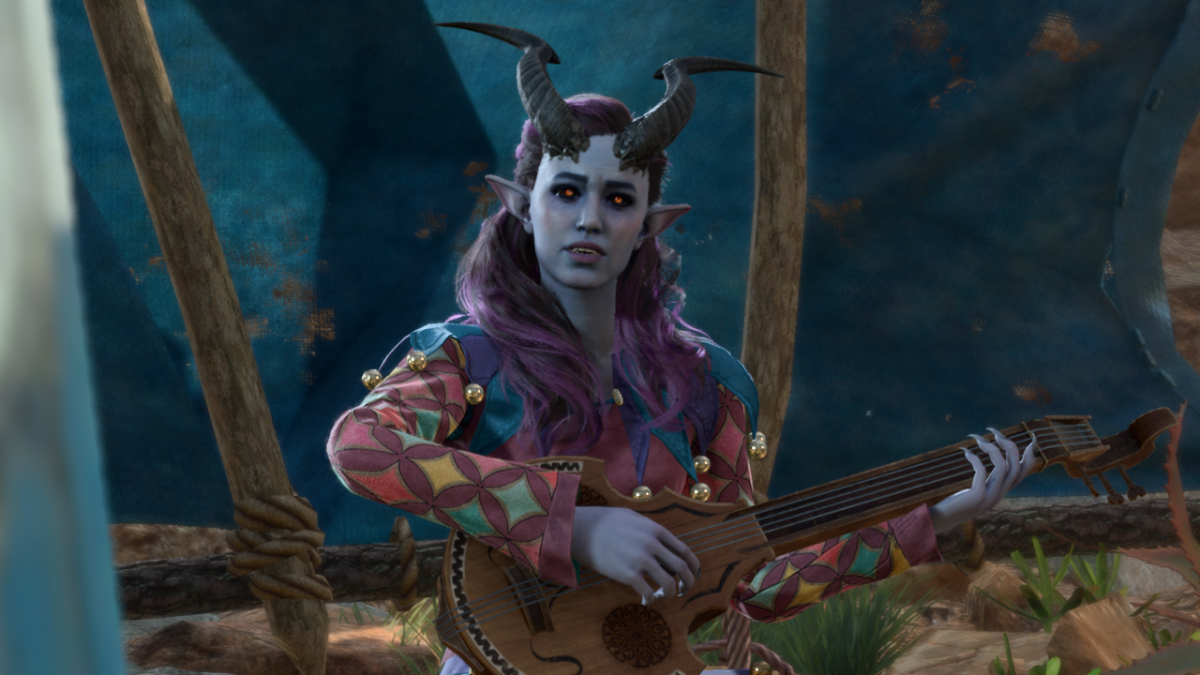
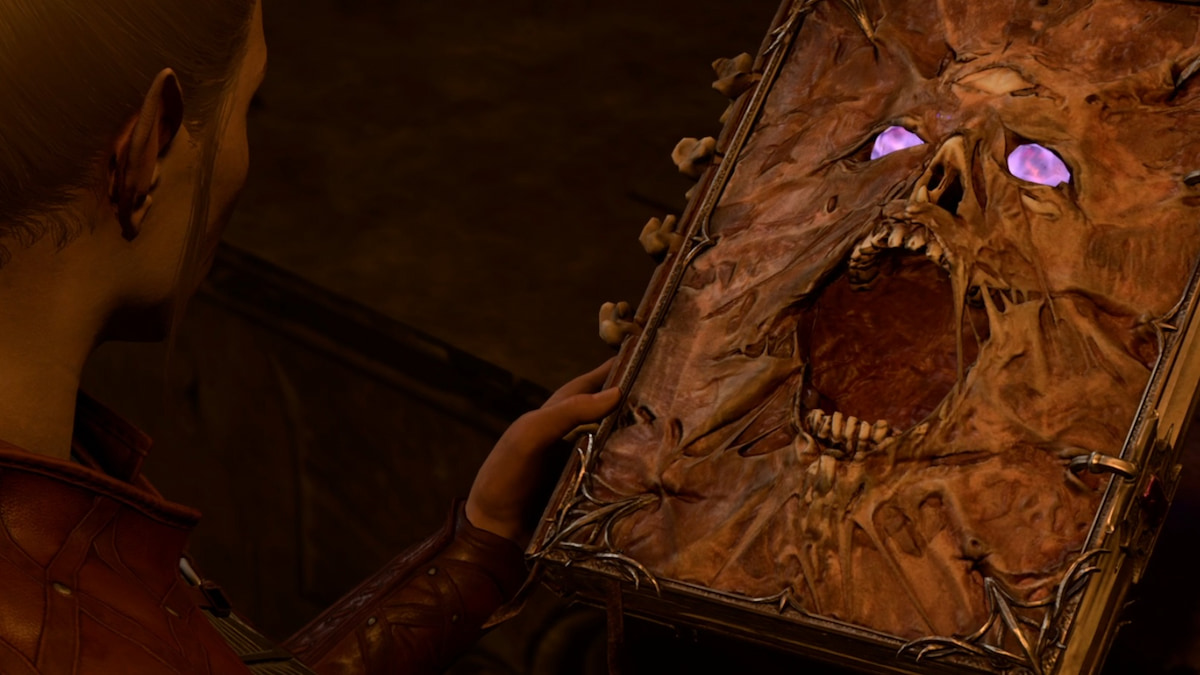
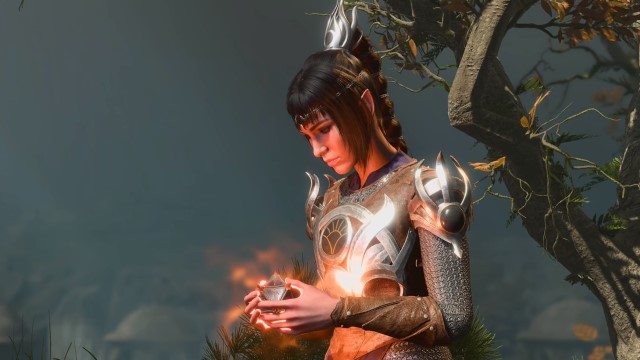

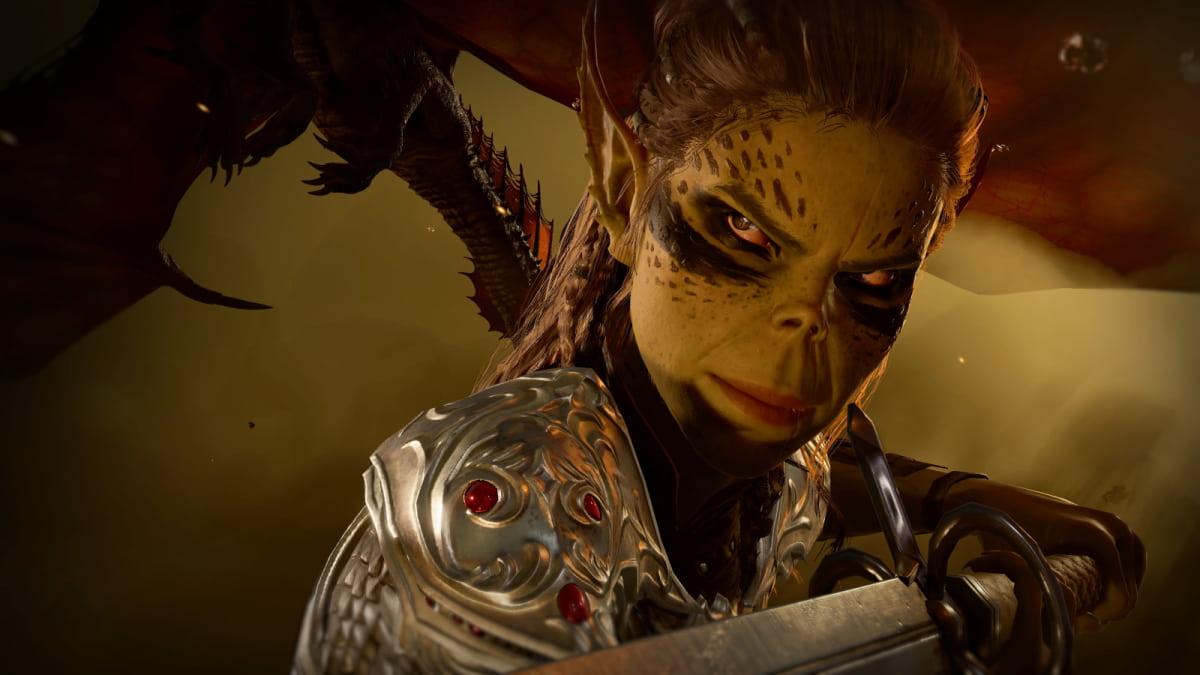
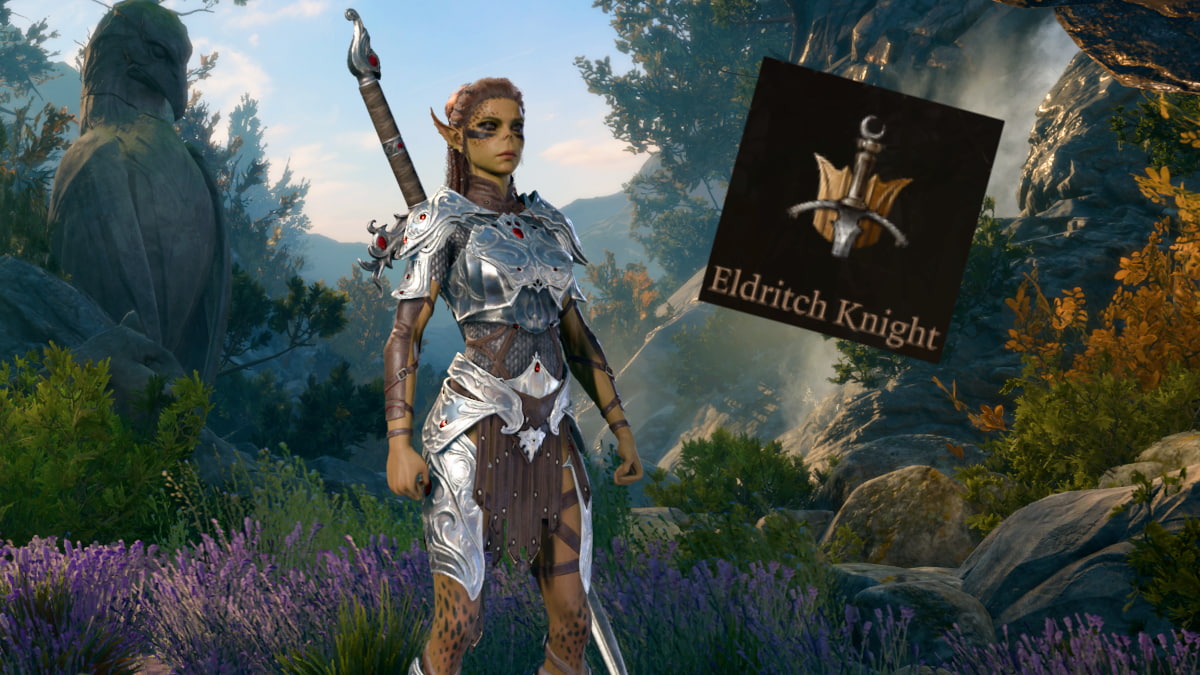


Published: Jan 4, 2024 12:45 pm